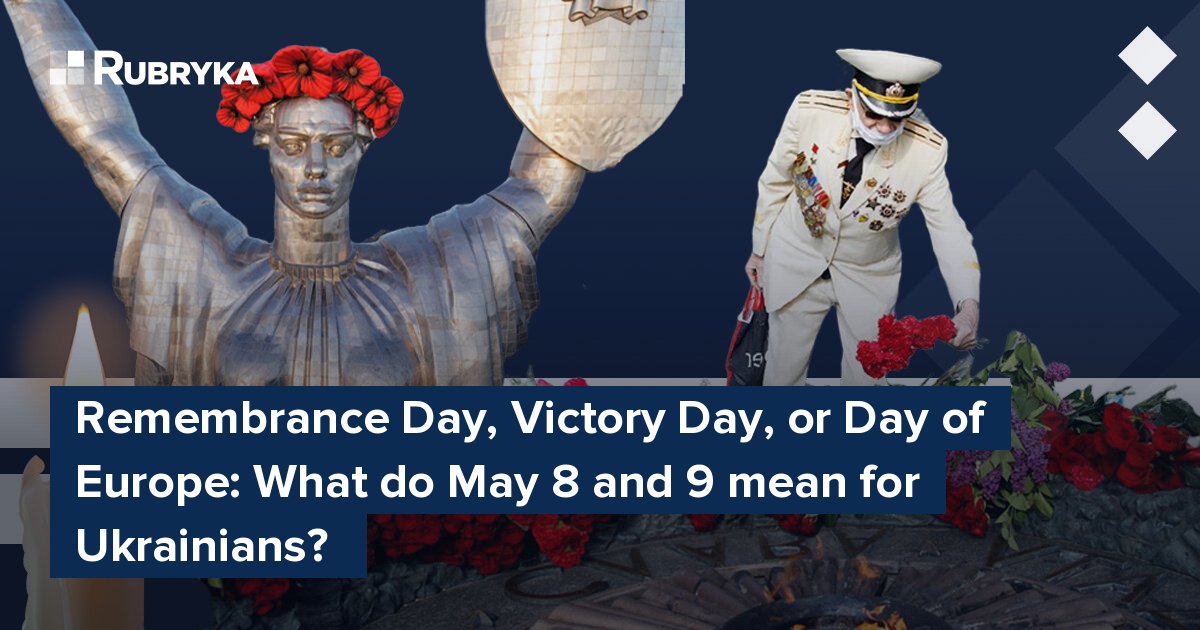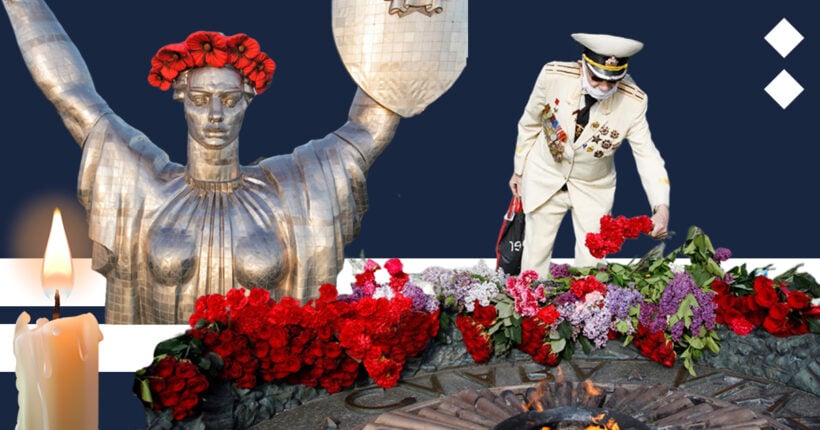
With the continued discussions within Ukrainian society regarding which dates should be given appropriate recognition, the Verkhovna Rada [the Ukrainian parliament — ed.] has proposed to make May 9 the Day of Europe, thereby removing it from its status as Victory Day and a holiday. On May 8 the President of Ukraine Zelensky signed a decree introducing the celebration of the Day of Europe on May 9 in Ukraine.
"We are returning to our state an honest history without ideological admixtures. It is on May 8 that most peoples of the world remember the greatness of the victory over Nazism. It is on May 8 that the world honors the memory of all those whose lives were taken by the war. It was on May 8 that the Act on the Unconditional Surrender of the Wehrmacht entered into force," Zelensky said.
In light of this, it is important to understand what Ukrainians celebrate on May 8 and 9 and how their attitude toward these significant dates has shifted.
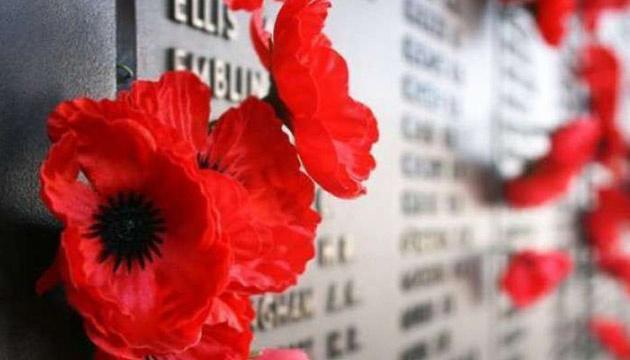
Photo: https://jmhum.org/
Uncovering a little bit of history
On May 7th, 1945, at approximately 02:00 a.m., the German delegation in Reims, France, signed the Act of Unconditional Surrender, which took effect at 23:00 the following day. Representatives of the Western Allies and the Union of Soviet Socialist Republics were present during the signing.
At the request of Joseph Stalin, a duplicate of the surrender was conducted in the Soviet zone of occupation near Berlin on May 8, 1945, at 22:43 Central European Time (which was already May 9 in Moscow).
In 2004, the United Nations General Assembly, in a resolution for the 60th anniversary of the end of the Second World War, proposed to the states to celebrate one or two days (May 8 and 9th) annually starting in 2005 as a tribute to all of the victims of the Second World War.
So what's the difference?
In Europe, May 8 is marked as the Day of Remembrance and Reconciliation rather than Victory Day on May 9. This is due to the immense tragedy the Second World War caused, with over 80 million lives lost. As a result, Europeans do not commemorate the war with parades or slogans such as "Never again."
Simultaneously, Victory Day in the USSR and its constituent countries was celebrated on May 9. The regime that had been ruling in the USSR devised a memorial day to commemorate the victory over Nazism, dubbed "Victory Day." Celebrations began in 1965, two decades after the war's end, as a way to differentiate from the Western world, which had chosen to commemorate the war's end on May 8. This date of May 9 was chosen to give the Soviet regime a more favorable image than the oppressive and totalitarian Nazi regime.
It should be noted that Russia has engaged in various forms of propaganda, which have, in turn, resulted in public confusion surrounding the terms Fascism and Nazism. Although both these ideologies were prevalent during World War II and Italy and Germany had established an alliance, they should be understood differently.
- Fascism was widespread in Italy and meant the formation of a corporate state.
- After all, it was Nazism that ruled in Germany, which assumed the supremacy of one race over another. Nazism is defined as "national socialism," and the Soviet Union had been attempting to build a socialist society and did not wish to be associated with the Nazi ideology, thus deliberately avoiding using this term.
It is also noteworthy to recognize the distinction of symbols for each day.
- The St. George ribbon is a widely-acknowledged emblem of Victory Day in post-Soviet countries, mainly in Russia. Yet, its origins are traceable to the time of Empress Catherine II when it was part of the Soldier's Order of St. George the Victorious. This ribbon is, therefore, not associated with the victory in World War II. Yet, it is widely seen today as the new Russian swastika, featured on soldiers' uniforms, the clothes of women and children, and even on equipment.
- Instead, in the rest of the world, the red poppy symbolizes the Day of Remembrance and Reconciliation. Symbolically representing the horrors of war and the ultimate hope of a world free from violence, the poppy has come to signify a commitment to peace and a reminder of the devastating effects of war.
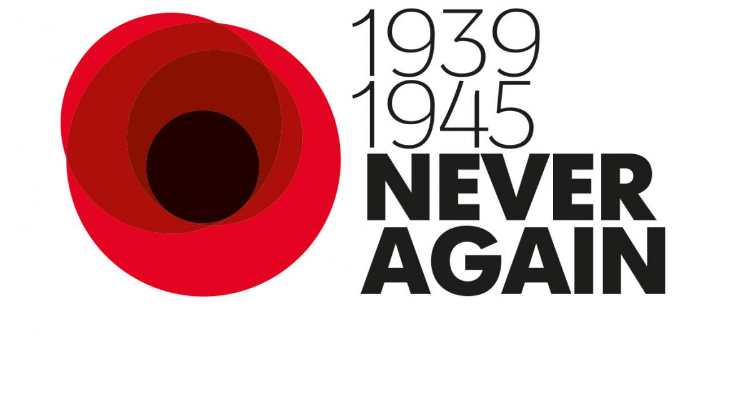
Photo: https://old.uinp.gov.ua/page/mak-yak-simvol-dnya-pamyati-ta-primirennya
Ukraine and Russia part ways: what happens next?
Annually, Russia organizes grandiose military and aviation parades to emphasize its power and grandeur and support the propagandistic narrative of a single-handed victory in World War II.
Russia "privatized" the victory holiday, turning it into an element of its state ideology to conduct an aggressive policy in our time, particularly against Ukraine. Following the propagandist lead of "defeating fascism in World War II," Russia now utilizes this narrative to "sell" the idea of the war against Ukraine to its population, as according to Russian propaganda, Ukraine, as well as other Western countries, is fascist.
It must be noted that the victory over Nazism was only possible through the collective efforts of numerous countries and their respective populations. No country can claim recognition of its own exclusive role in the victory over Nazism.
In the Russian Federation, the commemoration of the victory over Nazism has gradually developed into a cult-like phenomenon of "victory obsession." This phenomenon is used to promote war, the exaltation of one's own people, to assign the status of a "main winner," to justify the aggressive ideological mobilization of citizens, and to foster irresponsible and baseless revanchism.
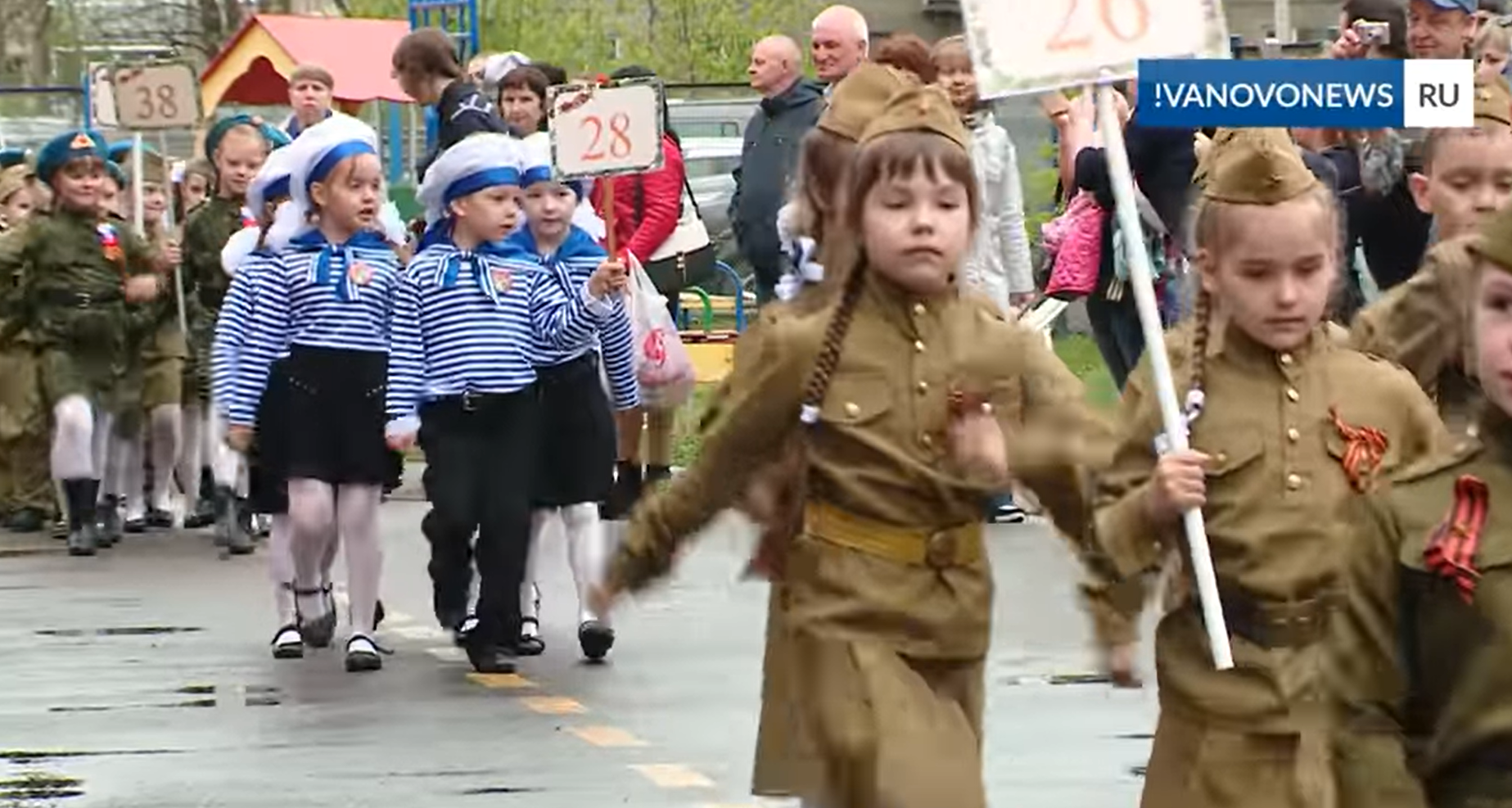
Photo: video screenshot/!vanovonews.ru
Ukraine, formerly part of the Union of Soviet Socialist Republics until 1991, inherited the commemoration of the end of the Second World War on May 9.
Over the years, this day in Ukraine has taken on a politicized nature, characterized by street and information confrontation between pro-Russian and patriotic forces, which has caused conflicts and escalated tension among the populace.
This perception of conflict was further intensified during the Revolution of Dignity events of 2013-2014, the Russian occupation of Crimea, and the commencement of the war in Donbas. Pro-Russian forces actively employed communist symbols, such as "Georgian ribbons," at May 9 rallies.
This resulted in the process of decommunization as an effort to distance itself from the date of May 9, which is symbolic of Ukraine's Soviet past and its historical connection to the Russian Federation.
In 2015, the Verkhovna Rada of Ukraine [the Ukrainian parliament — ed.] adopted a law to commemorate the victory over Nazism in the Second World War of 1939-1945, which established May 8 as the Day of Remembrance and Reconciliation, and, instead of the Soviet holiday Victory Day, May 9 was marked as the Day of Victory over Nazism in the Second World War to be celebrated annually.
The Ukrainian Institute of National Remembrance has highlighted the importance of the Day of Remembrance and Reconciliation in light of the Russian-Ukrainian war, noting that the two days should serve as a reminder of the horrors of war and a warning that complex international problems should not be solved through the use of arms.
A bit of sociology
In 2010, Victory Day, May 9, was deemed one of the most important holidays by 58% of the population, only second to New Year, Christmas, and Easter in terms of popularity. However, by 2021, this popularity had diminished to 30%; by 2023, only 13% of the population considered it the most important holiday.
This decline in popularity is believed to be connected to the war and the fact that Victory Day is celebrated in Russia as a militantly aggressive holiday, according to research from the Kyiv International Institute of Sociology referenced by Rubryka.
A few conclusions
On the Day of Remembrance and Reconciliation, Ukrainians commemorate not the triumph of the victors over the vanquished but a warning that dictators seek to satisfy their imperial ambitions by armed means, ultimatums, aggression, and annexation.
Ukrainians recognize that the most critical result of war is not the cult of victory but rather the ability to value peace and categorically and uncompromisingly defend it by all reasonable means.
In this spirit, Ukraine continues to fight to preserve peace, freedom, and democracy against the imperial ambitions of the Russian Federation.
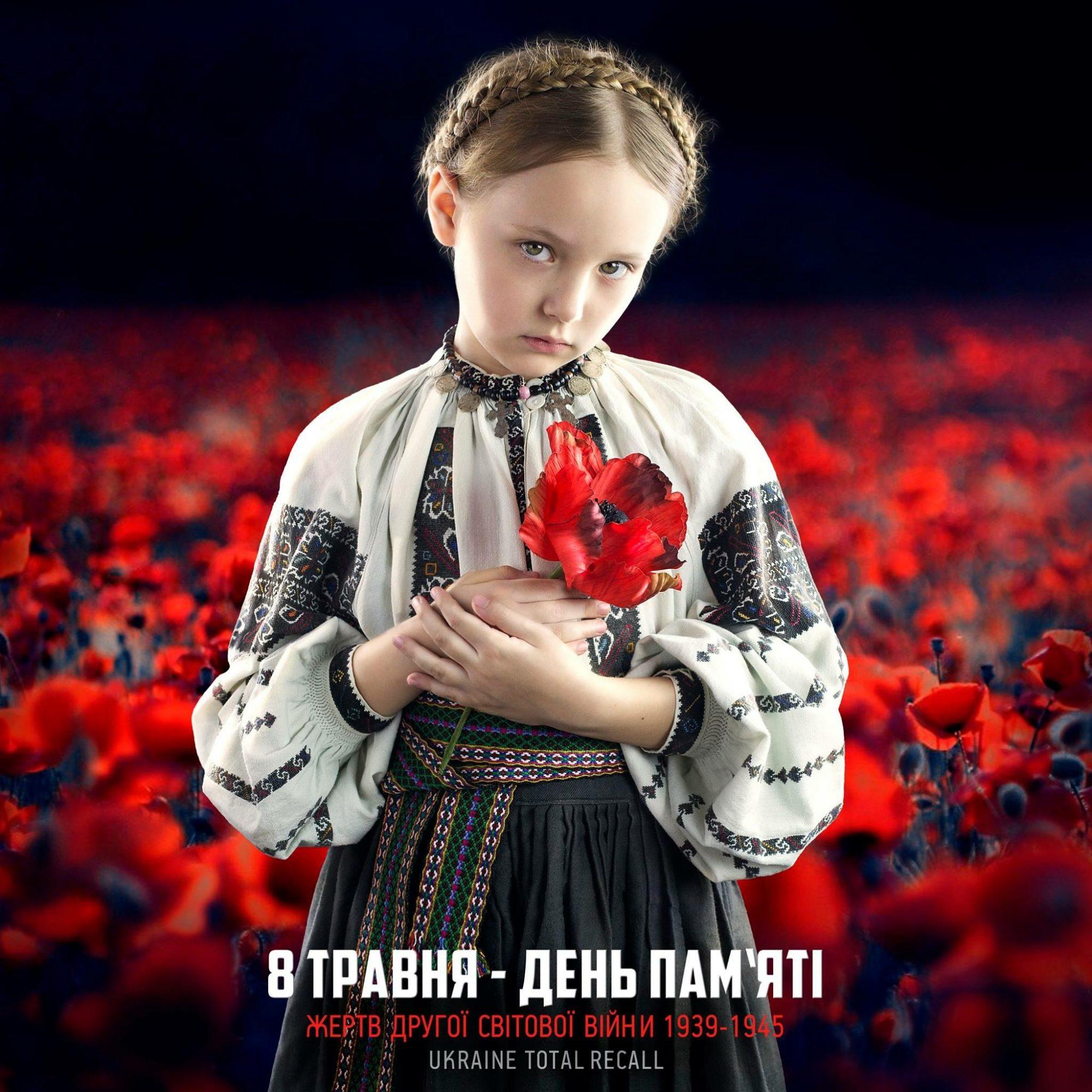
Photo: https://poglyad.tv/v-ukrayini-vidznachayut-den-pam-yati-ta-prymyrennya-article
Newsletter
Digest of the most interesting news: just about the main thing



